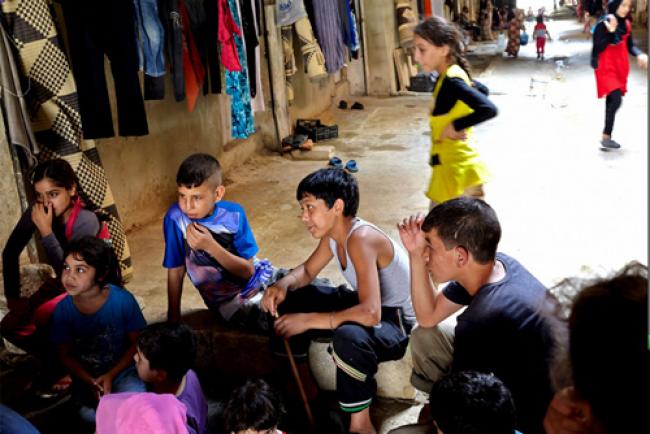Rights
Child Rights UN reports psychological distress of Syrian children
30 Nov 2013, 09:51 am Print

New York, Nov 30 (JEN): Syrian refugee children in Lebanon and Jordan suffer from widespread psychological distress, with many of them living alone or separated from their parents, and most receiving no education and involved in illegal labour, according to a new report by the United Nations refugee agency.
The Future of Syria – Refugee Children in Crisis word is the first in-depth survey conducted by the UN High Commissioner for Refugees (UNHCR) of Syrian refugee children since the conflict began in March 2011.
It found, among other things, that many Syrian refugee children are growing up in fractured families, and that children are often the household’s primary breadwinners. Over 70,000 Syrian refugee families live without fathers and over 3,700 refugee children are either unaccompanied by or separated from both parents.
“If we do not act quickly, a generation of innocents will become lasting casualties of an appalling war,” High Commissioner for Refugees António Guterres said in a news release.
There are over 1.1 million Syrian refugee children, most living in neighbouring countries. UNHCR noted that the ongoing conflict is leaving physical and emotional scars.
In Lebanon, the first six months of 2013 saw 741 Syrian refugee children being referred to hospitals for treatment of injuries. In Jordan, more than 1,000 children at the Za'atri refugee camp have been treated for war-related injuries over the past year.
Anger and other emotional responses were also common, the agency noted. During focus group discussions with refugee boys, several expressed a desire to return to Syria to fight. The researchers also heard a report of boys being trained to fight in preparation for return to Syria.
Many refugee families send their children to work to ensure survival. In both Jordan and Lebanon, the researchers found children as young as seven working long hours for little pay, sometimes in dangerous or exploitative conditions.
Most of the 680 small shops in Jordan’s Za'atri refugee camp employ children. An assessment in 11 of Jordan's 12 governorates found nearly one-in-two refugee households surveyed relied partly or entirely on income generated by a child.
“The world must act to save a generation of traumatized, isolated and suffering Syrian children from catastrophe,” said Hollywood actress and UNHCR Special Envoy Angelina Jolie.
The study includes multiple testimonies from children. “Our lives are destroyed. We are not being educated, and without education there is nothing. We’re heading towards destruction,” said Nadia, a newly arrived refugee in Jordan.
More than half of Syrian refugee children in Jordan are not in school, according to the report. In Lebanon, it is estimated that some 200,000 school-aged Syrian refugee children could remain out of school at the end of the year.
There are also a large number of babies born in exile without birth certificates – an essential document in the battle against statelessness. A recent UNHCR survey on birth registration in Lebanon revealed that 77 per cent of 781 refugee infants sampled had no official birth certificate. Between January and mid-October 2013, only 68 certificates were issued to babies born in Za'atri camp.
Guterres and Jolie called for support for Syria’s neighbours to keep their borders open, improve their services and support the host communities. They also appealed for countries beyond Syria’s borders to offer resettlement and humanitarian admission to people who continue to feel unsafe in exile and families with seriously wounded children.
Mahmoud with friends in an underground shelter where he lives with his family in El Akbiya, Lebanon. Half of the some 500 inhabitants of the dark underground shelter are children. Photo: UNHCR/S. Baldwin
More Rights
- US: Former school teacher pleads guilty of having sex with high schoo boy 20 to 30 times
- Report shows 39 percent children are currently out of school in Pakistan
- ‘Ten weeks of hell’ for children in Gaza: UNICEF
- Weather-related disasters displace 43.1 million children in six years, UNICEF reports
- Five-year-old Kansas girl raped, murdered, key suspect arrested






